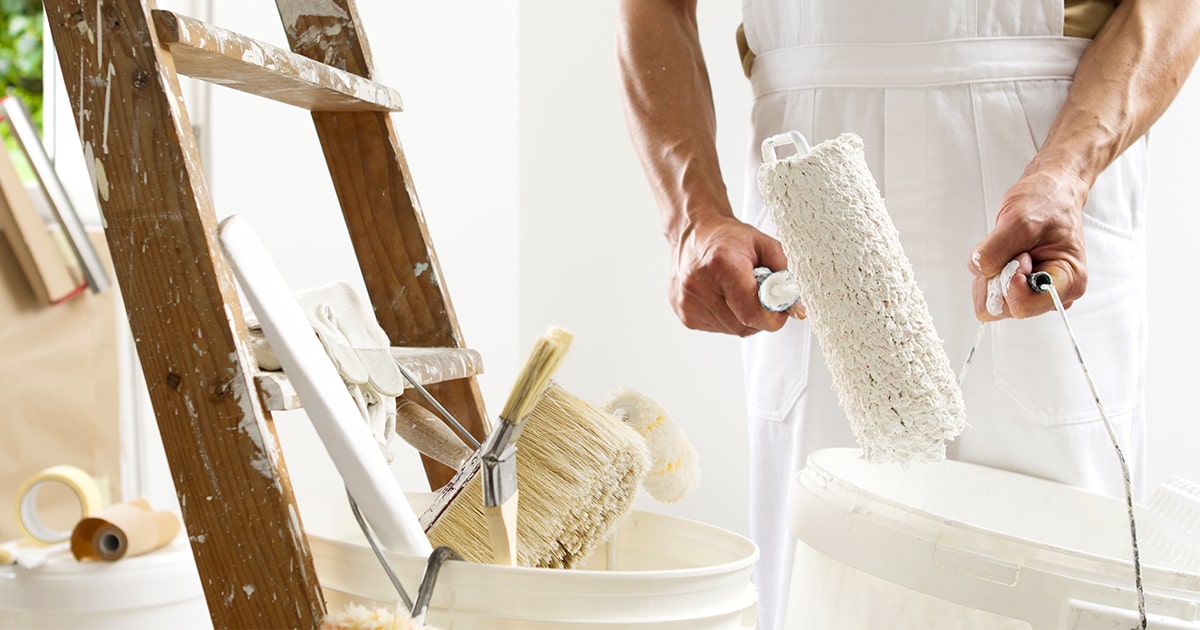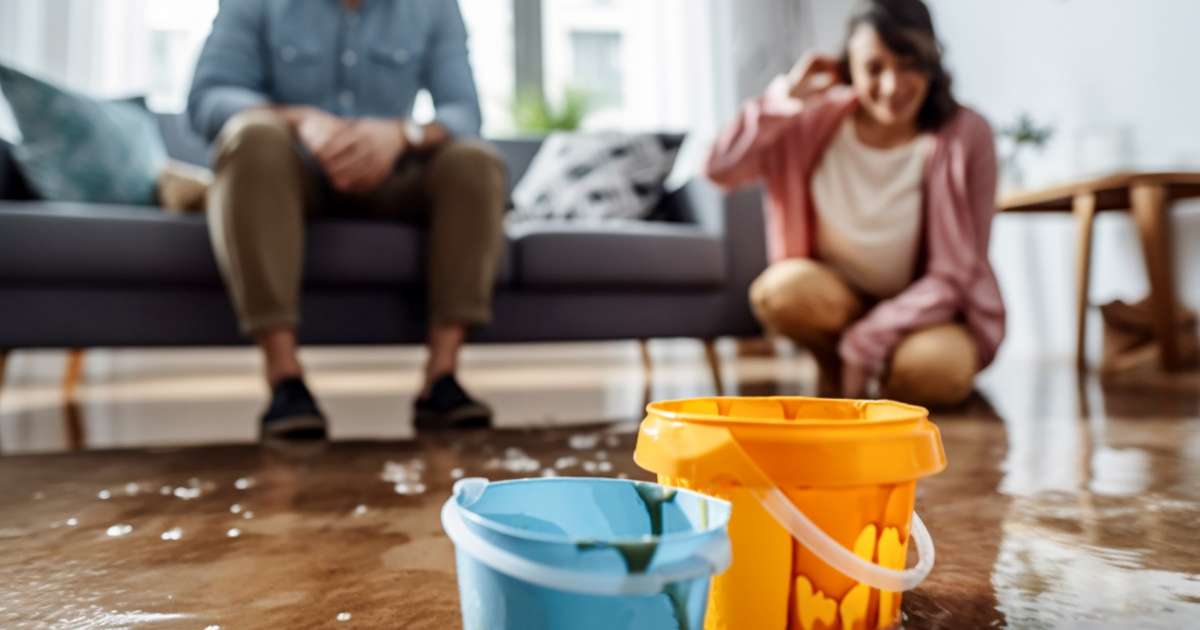Using lead in wall paint was banned in 1978. It had been very popular from the 1800s up until then and was in widespread use in schools, commercial buildings, homes, and even the paint used on toys. Ads from those days tout its wonders.
One ad called their paint “liquid lead.” Another ad featured a miner wearing a hardhat with the caption, “I’m digging out lead for folks who know PAINT.”
Of course, it wasn’t known back then that lead-based paint was hazardous or that homes with lead paint could pose a danger. It was used because it was durable, dried fast, and produced vivid colors.
Many houses built before 1978 in Dallas have lead-based paint.
According to the Environmental Protection Agency, “The older your home, the more likely it has lead-based paint. For example, 87% of homes built before 1940 have some lead-based paint, while 24% of homes built between 1960 and 1978 have some lead-based paint.” By 1978, the realization of the hazards of lead-based paint caused the manufacture of lead-based house paint to be banned in the United States.
This paint is particularly harmful for children and pregnant women, especially when the paint begins to chip or deteriorate, or is sanded or scraped. Lead poisoning can cause learning difficulties and developmental delays in children, among other health hazards.
How can you do a home test for lead paint? Detecting lead-based paint in old houses in Dallas can be difficult because it may be hidden beneath layers of newer paint. Lead-based paint can be identified when it gets older and cracks as it resembles alligator skin. It also produces a powdery residue called “chalking” when it’s older. Homes with lead paint often have areas, like closets and basements, that show the characteristics of lead in the wall paint.

How can you remove lead paint in old houses in Dallas?
Lead paint in old houses needs to be removed carefully, and that usually means a professional should do the work. When a non-professional scrapes and sands, it releases harmful dust particles into the air. Professionals with state or EPA certification have the right tools to remove lead paint in old houses, using methods like wet sanding and wet scraping, as well as chemical stripping processes.
Lead paint in old Dallas houses impacts property values. In fact, many buyers may pass on a great-looking house just because it contains lead paint. Lead paint isn’t cheap to remove. According to the home improvement expert Bob Vila, “lead paint removal cost ranges from $1,445 to $5,412, with the national average at $3,428 … The main factors affecting the total lead paint removal cost include the size of the affected area, the removal method used, the location of the paint, and any preparation work required.”
How to sell your house when it has lead in wall paint
If you don’t want to go through the hassle of having the lead paint removed from your house, you can sell it “as is” to We Buy Ugly Houses® in Dallas. We Buy Ugly Houses buys properties in all sorts of conditions, including houses with both exterior and interior lead-based paint.
Selling to us is as easy as 1–2–3. Simply contact us for a free, no-obligation consultation with one of our friendly Dallas property buyers. We’ll meet at your house, take a tour, and answer your questions. Sometimes, we can give you an offer the same day.
If you accept our offer, you’re on your way to a quick closing, sometimes in as little as 3 weeks.
Why trust We Buy Ugly Houses® in Dallas?
We Buy Ugly Houses is an exceptional, Dallas-based company that’s been in business since 1996. We have purchased over 150,000 houses since then. Our long-term experience has taught us how to work around problems and find solutions. We’re known for our excellent customer service; in fact, our sellers give us a high 95%* customer satisfaction rating nationwide and amazing reviews. You can read more about We Buy Ugly Houses in the news!
Get in touch with us to schedule your free consultation and learn more about selling your house that has lead-based paint.
This blog is for informational purposes only and should not be considered legal advice.











